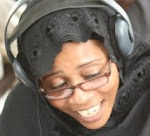Jan 22 (Reuters) - Nigeria's cabinet will decide
within 14 days whether President Umaru Yar'Adua is fit enough to
govern Africa's most populous nation after a two-month absence
for medical treatment, the Attorney General said on Friday.
The 58-year-old leader has not been seen publicly since
leaving on Nov. 23 to receive treatment for a heart ailment in
Saudi Arabia. He has not transferred power to his deputy,
triggering debate over the legality of government decisions.
Judge Dan Abutu ordered the cabinet to pass a resolution on
Yar'Adua's fitness within two weeks after a former lawmaker
brought a legal case against the government, saying his failure
to transfer power was in breach of the constitution.
"We will abide by the judgement of the court. The Executive
Council of the Federation will within 14 days, as directed,
consider a resolution on the state of the president's health,"
Attorney General Michael Aondoakaa said.
The Senate, which was briefed on Thursday on Yar'Adua's
health in a closed-door session, is due to meet next Tuesday for
an update and may also take a position on whether the president
should remain in office.
The cabinet unanimously agreed in early December, less than
10 days after Yar'Adua left for Saudi Arabia, that there were no
grounds to seek his resignation, rejecting calls for him to step
down or prove his fitness to govern.
Some political analysts say ministers are reluctant to come
out against Yar'Adua because they fear they would lose their
jobs if Vice President Goodluck Jonathan were to take over.
But pressure for a resolution has mounted since December.
Nigeria has had to cope with clashes between Christian and
Muslim gangs which killed hundreds of people in the central city
of Jos this week as well as the risk of resurgent violence in
the Niger Delta, the heartland of its mainstay oil industry.
More than 3,000 people marched to the state government
headquarters in the commercial capital Lagos on Thursday, a rare
public demonstration of political anger, demanding Yar'Adua give
up his executive powers or return to Nigeria immediately.
It was the second major street protest following a similar
demonstration in the capital Abuja.
"PATH OF MORALITY"
Nigeria's ambassador to Saudi Arabia, Abdullah Aminchi, said
a week ago Yar'Adua was expected to be discharged from hospital
very soon after showing significant recovery but there has been
no word on when he might return.
Foreign Minister Ojo Maduekwe declined to give a clear
answer when questioned in a BBC interview broadcast on Thursday.
"I am sure if the president is able to return yesterday, he
would come back by yesterday ... This president will do nothing
that jeopardises the national interest," he said.
"I do not rule out (a transfer of power to Jonathan) but he
should not be stampeded into doing that."
Former President Olusegun Obasanjo, Yar'Adua's direct
predecessor and his main sponsor to the presidency, defended
himself against accusations he had imposed an "invalid" on the
nation, but was less than equivocal in his support for Yar'Adua.
"If you take up a job, elected, appointed or whatever, and
then your health starts to fail you and you will not be able to
deliver ... to satisfy the people you are supposed to serve,
then there is a path of honour and path of morality," he said.
"If you don't know that, you don't know anything. I will
stop on that note," he told a briefing in Abuja on Thursday.
Obasanjo remains an influential figure within the ruling
party and his closeness to Jonathan means his influence over
government could grow should the vice president take over.
Abutu's ruling was in response to a case brought against the
government by a former lawmaker and an Abuja-based lawyer in the
hope that it would force Yar'Adua to hand over power.
Two similar suits by the Nigerian Bar Association and a
leading human rights lawyer are still awaiting judgement.
Abutu last week ruled Jonathan could exercise executive
powers but could not be "acting president", sparking confusion
over how far his authority extends while Yar'Adua is absent.
Jonathan on Thursday ordered the army to take over security
in and around Jos after days of clashes.
The opposition has questioned whether he is legally able to
deploy troops, saying the constitution gives only the president
that authority as commander-in-chief.
(For more Reuters Africa coverage and to have your say on the
top issues, visit: http://af.reuters.com/ )
(Writing by Nick Tattersall; Editing by Randy Fabi)





















